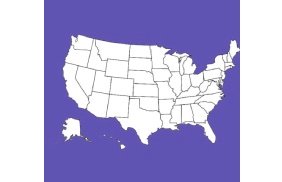BY AARON PELLEY
CONTACT AARON https://cultivalaw.com/team/aaron-pelley/
Despite the implementation of full-scale federal cannabis reform still being years in the future among the most optimistic estimates, cannabis’ botanical relatives of CBD and hemp have gained significant legality in the last four years. As it’s a plant that is both non-psychoactive and contains industrial fibers are more universally useful than the threads of the Onceler’s thneed sweaters, a larger number of elected officials are far more supportive of the legalization of this crop. Given the growing legalization of cannabis and the historical fact that hemp has been used for centuries to produce hundreds of different products, The Agriculture Improvement Act of 2018, more commonly known as the 2018 Farm Bill, not only authorized the cultivation and production of industrial hemp but also removed hemp and hemp seeds from the painfully outdated and disproven DEA Schedule of Controlled Substances.
The 2018 Farm Bill, which passed in Congress with a supermajority of 369-47, gave farmers across America a new vitally useful crop to cultivate and produce a new stream of income from and allowed the individual states to implement their own hemp production programs and regulations. In states that serve as the agricultural backbones of America such as Texas and Kansas, the ramifications of this bill will likely be beneficially grand for the local agricultural economies of these states.
Likely because there actually have been reforms and what essentially amounts to nationwide legalization on the federal level for cannabidiol and hemp, the internet giants are slowly but surely loosening their regulations on advertising CBD and hemp products. Once incredibly stringent and authoritative to the point of deactivating entire accounts simply for mentioning hemp or CBD, search engine giants such as Google are relaxing their rules on advertising and marketing on their platforms in ways once thought to be impossible. Even if the improvements and reformations are minimal at best, it’s still a step in the correct direction for cannabis, CBD and hemp advertising regardless.
In December of 2022, Google published an update to their policies surrounding “Healthcare and Medicines” and the slightly overdramatically named when referring to CBD/hemp, “Dangerous Products and Services”
“On January 20, 2023,” the bulletin reads, “the Dangerous Products and Services and Healthcare and Medicines Google Ads policies will be updated to allow for the promotion of FDA-approved pharmaceuticals containing cannabidiol (CBD) and topical, hemp-derived CBD products with THC content of 0.3% or less in California, Colorado, and Puerto Rico.”
While this update to Google’s policy is undeniably a correct move, the limitations of this update can’t be understated and this move is a snail’s step in the right direction at absolute best. To begin with, any CBD or hemp-derived products need to go through the entirely arduous approval process of the Food and Drug Administration. The process of going from creating a potential new medicine to receiving FDA approval could take years. It’s a five-step process and clinical trials alone take years of costly and extensive research. After that, it’s many more months before the FDA will either approve or reject a potential drug from going onto the pharmaceutical market.The list of CBD products officially approved by the FDA is so impossibly limited that as of today, only a single CBD-based drug has been approved by the agency. Epidiolex, a drug made from a concentrated CBD substance which is used to treat epileptic conditions, is the only cannabinoid-based drug to receive full FDA approval. To clear the air, the FDA is very forward about the unauthorized production and sale of cannabinoid medicines.
“There are no other FDA-approved drug products that contain CBD.” the FDA’s website plainly states. “We are aware that some firms are marketing CBD products to treat diseases or for other therapeutic uses, and we have issued several warning letters to such firms.”
“Drugs must generally either receive premarket approval by FDA through the New Drug Application (NDA) process or conform to a “monograph” for a particular drug category, as established by FDA’s Over-the-Counter (OTC) Drug Review.” the agency explains.
“CBD was not an ingredient considered under the OTC drug review. An unapproved new drug cannot be distributed or sold in interstate commerce.”
Furthermore, assuming a CBD manufacturer does somehow obtain FDA approval and surpasses that major hurdle, the path to advertising on Google is far from over. In fact for the overwhelming majority of Americans, the path may not even adequately finish. As of the December 2022 announcement from Google, advertising will only be offered to CBD pharmaceutical manufacturers in two states, California and Colorado, and only one US territory, Puerto Rico.
This means that if you live in any of the other 48 states or any other US territory, then advertising with Google is likely impossible. If the new measure couldn’t have been any more restrictive, the update still prohibits “all ads promoting other CBD-based products, including supplements, food additives, and inhalants.” This measure bans many of CBD’s most famous product types, from capsules to vape pens and any edible CBD products. If the product is derived from cannabidiol yet doesn’t fit into the very limited list of products that the Google update is requiring, then advertising on Google will remain off limits to the majority of CBD businesses.
Google advertisements could be extremely useful and lucrative for CBD manufacturers and businesses across America. However due to these new incredibly strict rules, aspiring canna-business owners will likely have to wait several more years before Google’s regulations are relaxed enough to allow less restrictive marketing and advertising strategies.




